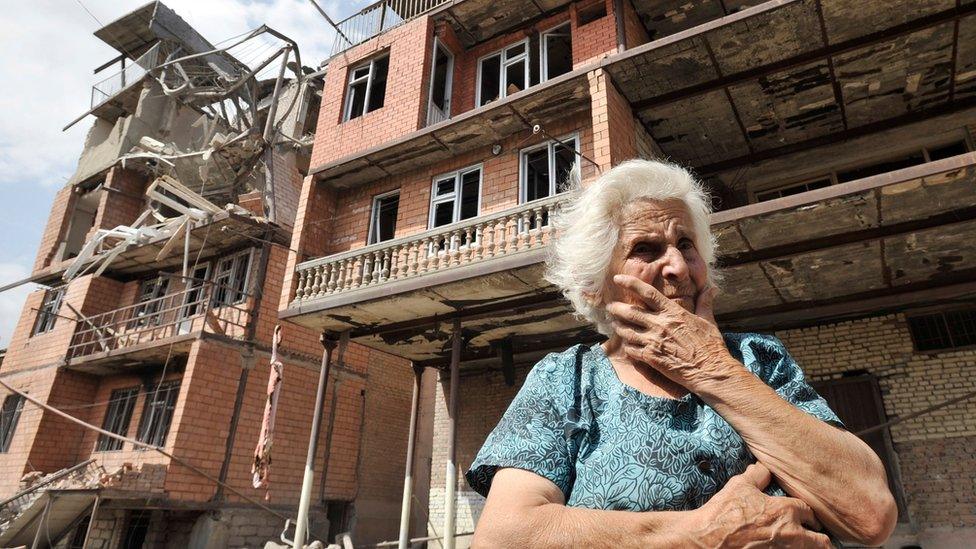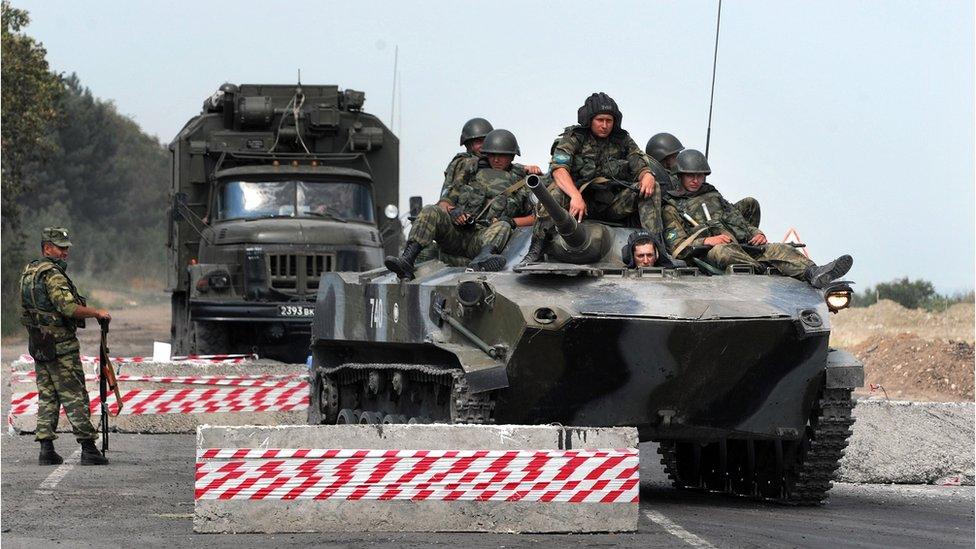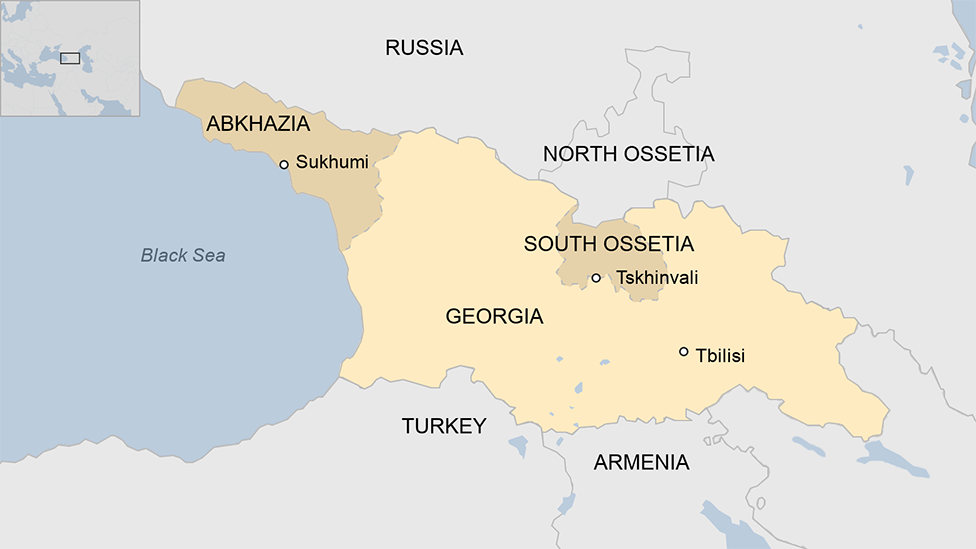ICC authorises Russia-Georgia war crimes investigation
- Published

Many Georgian homes were destroyed in the 2008 war
The International Criminal Court (ICC) has authorised an investigation into possible war crimes perpetrated during a conflict between Russia and Georgia.
The investigation relates to the conflict in 2008 centred on South Ossetia, a breakaway region of Georgia.
The ICC says it has "a reasonable basis to believe" that crimes against humanity and war crimes were committed.
More than 6,000 alleged victims made representations to the court in December 2015.
In October 2015, ICC prosecutor Fatou Bensouda announced she had evidence suggesting both sides had killed peacekeepers, which is a war crime.
It also suggested that South Ossetian forces had killed ethnic Georgian civilians.
The ICC said the types of crimes allegedly committed included:
Crimes against humanity, such as murder, forcible transfer of population and persecution
War crimes such as attacks against the civilian population, wilful killing, intentionally directing attacks against peacekeepers, destruction of property and pillaging
It said the crimes allegedly happened between 1 July and 10 October 2008.
This will be the ICC's first investigation into a conflict outside Africa.

South Ossetia, officially part of Georgia, is separated from the North Ossetia region of Russia by an international border. It is inhabited mostly by Ossetians, who are ethnically and linguistically distinct from other peoples in the region. Most ethnic Georgians have been displaced from South Ossetia by conflict.
Georgia, including South Ossetia, was part of the Russian empire in the 19th Century. After the 1917 communist revolution, Georgia became independent but it was declared part of the Soviet Union in 1921.
After the 2008 war, Moscow recognised South Ossetia as an independent state and began a process of closer ties that Georgia views as effective annexation.

The war began after an escalation of clashes between pro-Russian separatists and Georgian forces, who tried to seize back South Ossetia.
But Russian troops quickly retook the area and pushed deeper into Georgian territory, stopping just short of the capital, Tbilisi.
Nearly 1,000 people were killed while tens of thousands of Georgians living in the disputed areas were forced out of their homes.
Prosecutors have said there is evidence that up to 18,500 people were uprooted as part of a "forcible displacement campaign" conducted by South Ossetian authorities, and that the ethnic Georgian population in the conflict zone was reduced by at least 75%.
Russia is not a member of the ICC, which is based at The Hague.
Correction 28 January 2016: An earlier version of this story was amended because it wrongly implied that South Ossetia existed as a Russian territory before its incorporation into the Soviet Union in 1921. The amendment also clarifies how the war erupted.
- Published13 October 2015

- Published25 October 2024
